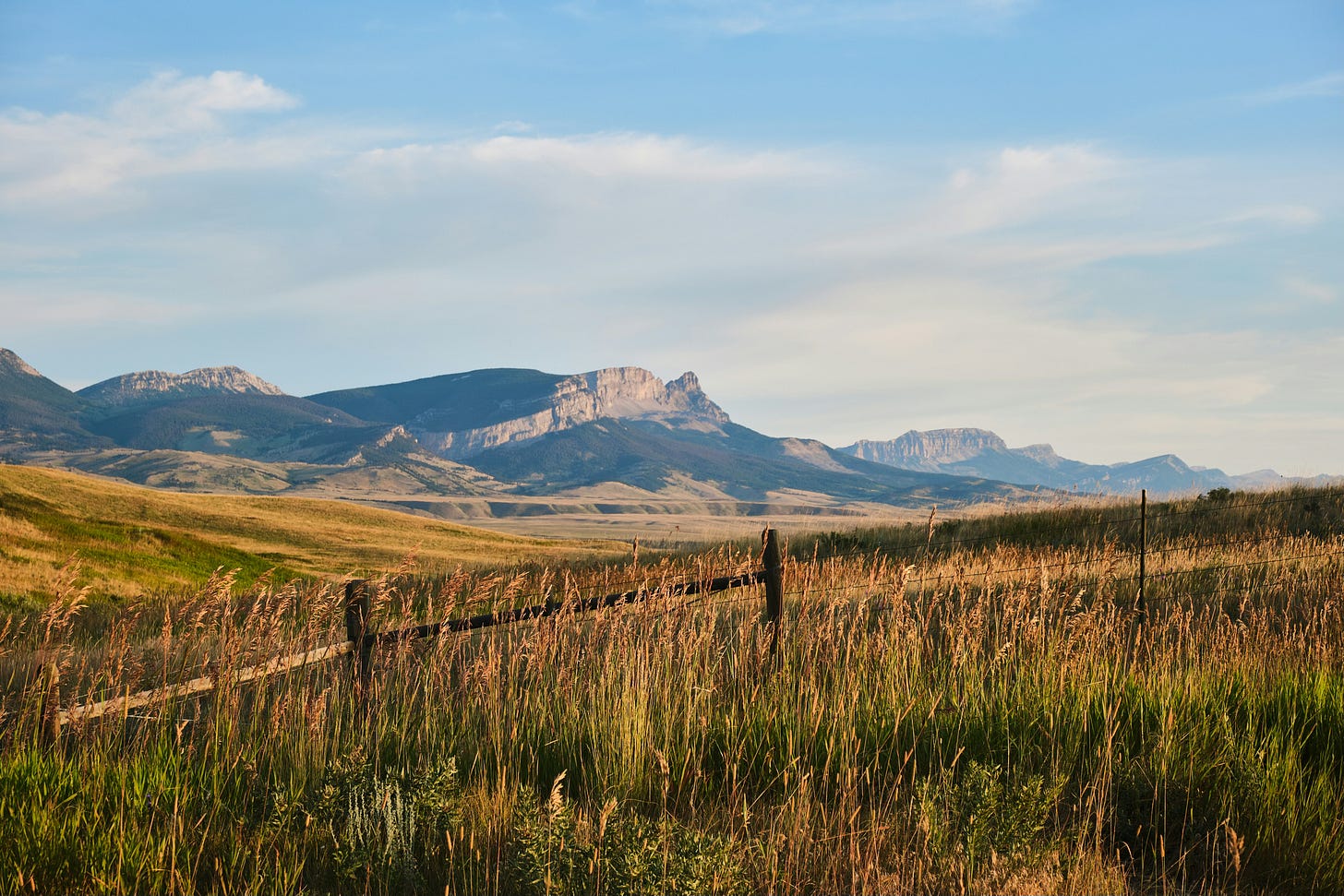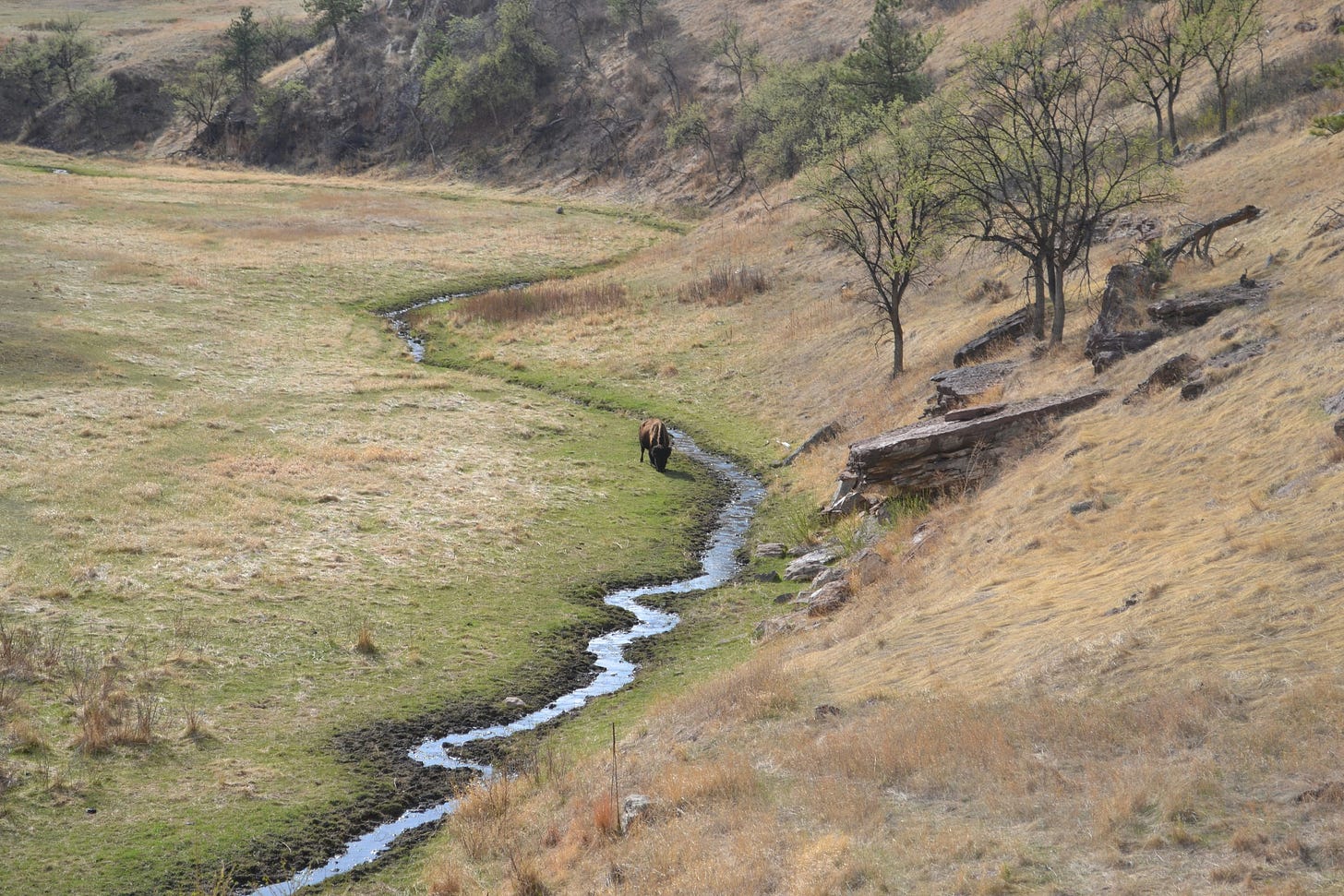The Risks of Routine
Under the Broom Tree — Lessons From Elijah the Tishbite
The crucible of our formation is in the monotony of our daily routines.
— Tish Harrison Warren
This series, “Under the Broom Tree,” is a journey through the life of Elijah, a prophet who stood boldly on mountaintops and despaired under a broom tree. His story is not one of unshakable confidence, but of faith that was tested by fear, loneliness, and distress.
We live in an age not unlike Elijah’s: an age of drift, moral confusion, and spiritual fatigue. He shows us what it means to stand before God, even when everything else is crumbling. He teaches us how to be bothered in the right way — and how to remain faithful when we feel like we’re the only ones left.
Link to previous articles: [Post 1] [Post 2] [Post 3]
The Challenge of Routine
Routine is one of the hardest places to see God.
Not because he isn’t there, but because we grown used to him, familiar with him. And it’s easy to overlook what becomes familiar — even the Lord God Almighty.
At first, his blessings make us marvel: a sunrise, the “perfect job,” the spouse we been praying for. But then the days repeat, and what was once received as a holy gift becomes habitual.
I once heard a story of a man that moved to Montana. Each morning he woke up, got his cup of coffee, stood outside and gazed in wonder at the scenery that most of us only experience on postcards or screensavers. But the day came when he barely noticed. He left his house, hopped into his car, and drove off to get fast food, without paying even a little homage to the majestic mountains.

They were still there, but his sense of awe had dulled into routine.
It happens slowly — this erosion of wonder.
One day we’re awestruck by manna — “what is it!?” (Exodus 16:15); another day we’re grumbling that it tastes the same (Numbers 11:6). One day we rejoice in answered prayer; another day we expect it without being thankful and feel entitled when it’s late.
This is because we’ve trained ourselves to look for God in the spontaneous, the dramatic, the extraordinary — and God is there. But the ways of God are often quiet, routine, and sustained — far more like the sunrise than the lightning strike. And in those daily, repeated mercies, he is no less present.
G.K. Chesterton understood this better than most. He wrote:
“Because children have abounding vitality, because they are in spirit fierce and free, therefore they want things repeated and unchanged. They always say, ‘Do it again’; and the grown-up person does it again until he is nearly dead. For grown-up people are not strong enough to exult in monotony. But perhaps God is strong enough to exult in monotony. It is possible that God says every morning, ‘Do it again’ to the sun; and every evening, ‘Do it again’ to the moon. It may not be automatic necessity that makes all daisies alike; it may be that God makes every daisy separately, but has never got tired of making them. It may be that He has the eternal appetite of infancy; for we have sinned and grown old, and our Father is younger than we.”
Elijah knew this, too. Every morning and evening, the ravens came — bread and meat, again and again. And the brook kept flowing. Day after day. Week after week. Month after month.
Elijah’s challenge wasn’t in receiving the miracle — it was in continuing to recognize the hand of God in it once it became routine. And perhaps that’s the greater test of faith: not the crisis that drives us to cry out for deliverance, but the daily provision that calls us to pay close attention to its source.
God’s people have always struggled here. When the gifts come daily, predictably, we start to forget they are gifts at all. That is what will happen by default; it takes effort to see the Giver when the gift is more visible. Thus, Moses warned the Israelites, saying, “Take care, lest you forget the LORD your God… who brought you water out of the flinty rock” (Deuteronomy 8:11, 15).
The danger was never in hunger or thirst — it was in being full and forgetting where fullness truly comes from.
Likewise, the psalmist instructs us, “If riches increase, set not your heart on them” (Psalm 62:10). And we might add: If water flows, or bread appears, or birds deliver meals — be thankful. But don’t set your heart on them.
Because one day what is routine may be disrupted, and if we were relying on it, what will become of us?
When the Brook Runs Dry
“And after a while the brook dried up, because there was no rain in the land” (1 Kings 17:7).
It didn’t dry up all at once, but gradually, almost imperceptibly — the way creeks do in late autumn. First, Elijah might have noticed it wasn’t as loud as before. Then he might’ve noticed some stones appearing that were once submerged. Each day the stream grew thinner and ran slower. Perhaps he knelt longer to quench his thirst. And then one morning, he bent down and found… nothing.
When the provision ran out, he didn’t leave to seek another source, but he stayed.
He watched the brook dry up with no fresh word from God. No new direction. Just less and less of what once felt like abundant provision. If we were to walk past him, we might be tempted to shout, “Man of God, what’s your plan?”
We ask that a lot — especially in churches. A problem arises, the rumor mill begins working feverishly, a meeting is called, with one agenda item: Come up with a plan!
Planning has its place — there’s wisdom in it — but it is not the starting place. When we rush to plan, to strategize, to solve, it reveals a hidden truth about our faith; that is, it is the kind of faith that trusts in outcomes, not in God. It is a faith that — opposed to the wisdom in Proverbs — leans on our own understanding. The kind of faith that needs to be in control, rather than surrendered.
Israel was called out on this often:
“Ah, stubborn children,” declares the LORD, “who carry out a plan, but not mine, and who make an alliance, but not of my Spirit, that they may add sin to sin” (Isaiah 30:1).
“They set up kings, but not by Me. They make princes, but without My approval. With their silver and gold they make themselves idols, to their own destruction” (Hosea 8:4)
“The angel of the LORD said to Elijah the Tishbite, “Arise, go up to meet the messengers of the king of Samaria, and say to them, ‘Is it because there is no God in Israel that you are going to inquire of Baal-zebub, the god of Ekron?” (2 Kings 1:3)
Again and again: plans without prayer, leadership without listening, action without waiting. All of this can happen disguised as faith, but God sees through our disguises.
Faith Versus Fear
Faith doesn’t begin with a to-do list. It begins with an open ear. As Paul reminds us, “faith comes by hearing” — not by strategizing and planning. This means, there can be no faith were there is no word from God.
Fear, on the other hand, cannot sit still. It is allergic to silence. It thrives on urgency. It’s driven by what it sees — the drying brook, the empty pantry, the anxious crowd. Then it whispers lies into the void: You have to move. You have to fix this. You have to come up with something. It demands action. “Do something,” it says. “Anything!”
But someone will say, “Doesn’t God call us to act? Faith and works aren’t enemies. We have to take initiative sometimes, right?”
Yes — but only the kind of initiative that flows from trust founded on God’s word, not anxiety.
Faith is not opposed to initiative, nor to action. Indeed, both are essential to a life of obedience. But there is a big difference between stepping forward in obedience and rushing ahead in fear.
I remember sitting with a pastor friend, sharing a few paths that lay before me. He asked, “Which way do you sense the Lord leading you to take?” I wasn’t sure yet. He nodded and said, “Then pray and wait. Last thing you want is an Ishmael.”
Confused, I asked what he meant. He pointed to the origin of Ishmael, Abraham’s first son. He was born, as the apostle Paul would say, “according to the flesh” (Gal. 4:23). Which is to say, entirely of human effort that is not dependent on God.
Abraham and Sarah had the promise — the Word — but not the patience. So they moved impatiently, and called it faith. But it was all flesh. They wanted to make the promise happen, but instead they made Ishmael. And though God blessed the boy, the consequences never left Abraham’s house.
Waiting for God’s Word
But Elijah offers us a different picture — a life not driven by pressure, or scarcity, but by patience. Where Abraham stepped ahead of the Word, Elijah stood still under it.
He didn’t run. He didn’t scramble to make a plan to account for the diminishing resources. God had said, “hide yourself there… You shall drink from the brook, and I have commanded the ravens to feed you there.” So there he remained.
He stayed where God told him to stay — even as the water receded and the brook ran dry. Because Elijah knew: the brook was not his provider. The ravens were not his source. God was.
The same God who brought water from a rock. The same God who provided a ram in the thicket. It was his word that Elijah trusted, and so it was his word Elijah would wait for.
This is where we all live eventually — between God’s last word and the next one. Between the drying stream and the next command. In that place heaven seems slow and quiet and “logic” screams so loud with its demands. When we’re there and tempted to take matters into our own hands, we should think of Elijah, and wait on the Lord.
Elijah didn’t move until God spoke. And when he did, the direction was clear.
Next stop: Zarephath.
You reached the end! 👏👏👏 Thank you for reading it. Help me get it in front of others by hitting the “like” button and/or sharing it with someone. ✌️




I needed to hear this today. Thank you .
This was a message truly inspired by God for such a time as this at my local church. I have shared it with some of the
leadership.
I will wait patiently (not my usual method of operation), to see God in what is happening.
Thank you for sharing your insight and wisdom. I am sure I will be quoting you many times. Peace!